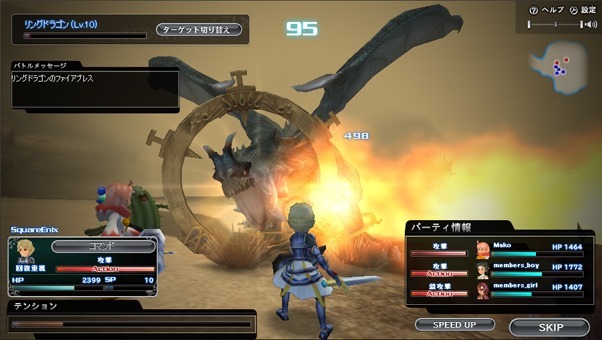Square Enix Layoffs: Strategic Shift & Multi-Platform Focus

Square Enix, the legendary publisher and developer behind iconic franchises like *Final Fantasy* and *Dragon Quest*, has confirmed it is undergoing a significant restructuring that includes layoffs across its American and European divisions. The move is part of a new, three-year business plan designed to streamline operations, improve profitability, and refocus the company’s approach to game development and publishing.
The announcement, which came alongside the company's latest financial results, outlines a major strategic pivot for the Japanese powerhouse. This reorganization will impact employees primarily in the company's publishing, IT, and indie game collective departments in the West. While an exact number of affected staff was not publicly disclosed, the changes are described as substantial as the company aims to create a "more efficient and leaner organization."
A New Vision: "Square Enix Reboots and Awakens"
At the heart of this restructuring is a new medium-term business plan titled "Square Enix Reboots and Awakens." This forward-looking strategy is a direct response to recent financial performance, where the company saw disappointing profits despite increased sales, largely due to the underperformance of several key AAA titles.
The core objective of the new plan is to shift from a strategy of quantity to one of exceptional quality. The company intends to be more selective about the projects it greenlights, ensuring each title receives the resources and development time needed to become a major commercial and critical success. This marks a significant departure from its previous approach of releasing a wide slate of games each year.
Key pillars of the "Reboots and Awakens" plan include:
- Focus on Quality Over Quantity: The company will concentrate its development resources on creating high-quality, must-play AAA games that have the potential to captivate a global audience.
- Aggressive Multi-Platform Strategy: Square Enix is officially moving away from console exclusivity. The publisher plans to "aggressively pursue a multi-platform strategy" that includes bringing its major titles to PlayStation, Xbox, Nintendo platforms, and PC. This will allow more players to access their beloved franchises.
- Strengthening Core Franchises: The plan emphasizes a renewed focus on developing both new intellectual properties (IPs) and delivering blockbuster experiences within its established and world-renowned series.
- Rebuilding Overseas Operations: The current layoffs and reorganization are a direct part of an effort to optimize and streamline the Western business divisions, aiming for better collaboration and efficiency with the Japanese headquarters.
The Context Behind the Changes
This strategic overhaul follows a challenging period for the company. Despite launching highly anticipated games like *Final Fantasy VII Rebirth*, *Final Fantasy XVI*, and the new IP *Foamstars*, reports indicate that these titles did not meet the ambitious sales expectations set by the publisher. The immense cost of developing modern AAA games, combined with sales figures that fell short of targets, led to a significant drop in the company's operating profit.
The decision to restructure is a direct acknowledgment of these challenges. By consolidating functions and focusing resources, Square Enix aims to create a more stable and profitable foundation for its future. The company stated its goal is to achieve long-term, sustainable growth by being more deliberate and strategic in every aspect of its business, from development to marketing and publishing.
What This Means for Gamers
For fans of Square Enix games, this new direction brings both change and promise. The most immediate and significant change will be the publisher's commitment to a multi-platform future. Gamers on all major consoles and PC can look forward to more Square Enix titles being available on their platform of choice, potentially ending the era of long-term PlayStation exclusivity for major releases like future *Final Fantasy* installments.
Furthermore, the emphasis on "quality over quantity" suggests that while there may be fewer releases overall, the games that are published will be more polished, ambitious, and complete experiences. The company is betting that investing deeply in a smaller number of high-potential projects will yield better results than spreading its resources thinly across a larger portfolio.
This period of transition is undoubtedly difficult for the employees affected by the layoffs, marking another significant workforce reduction in the video game industry this year. For the company and its fans, however, this "reboot" is positioned as a necessary step to ensure Square Enix can continue to deliver the unforgettable, world-class gaming experiences it has been known for for decades to come.
Frequently Asked Questions (FAQ)
Why is Square Enix laying off employees?
Square Enix is conducting layoffs as part of a major three-year business plan called "Square Enix Reboots and Awakens." The goal is to restructure the company to improve profitability, focus on developing higher-quality games, and streamline its Western publishing and IT operations.
Which departments are affected by the Square Enix layoffs?
The layoffs are primarily impacting employees in the publishing, IT, and the Square Enix Collective indie games division across the company's offices in the United States and Europe.
Will Square Enix games still be exclusive to PlayStation?
The company has announced a new "aggressive multi-platform strategy." This means future titles are expected to launch on a wider variety of platforms, including PlayStation, Xbox, Nintendo consoles, and PC, moving away from the previous focus on console exclusivity.
What is the goal of Square Enix's new business plan?
The primary goals are to shift from producing a large quantity of games to focusing on high-quality, blockbuster titles; to increase profitability by being more efficient; and to grow its audience by releasing its major games on multiple platforms.